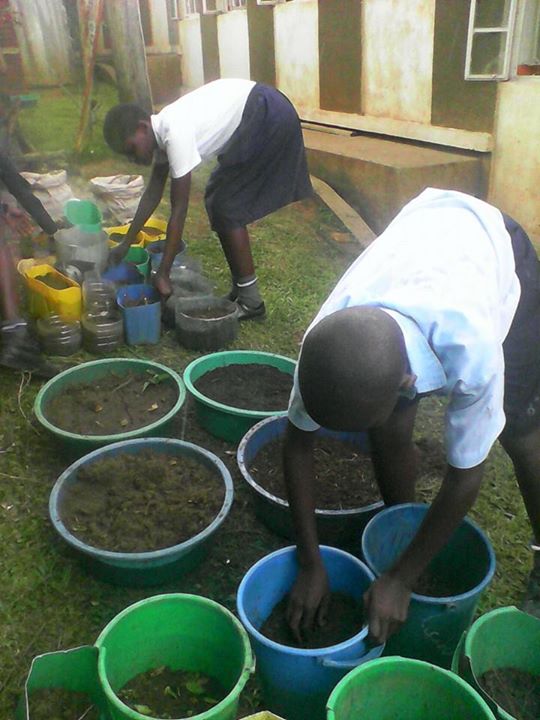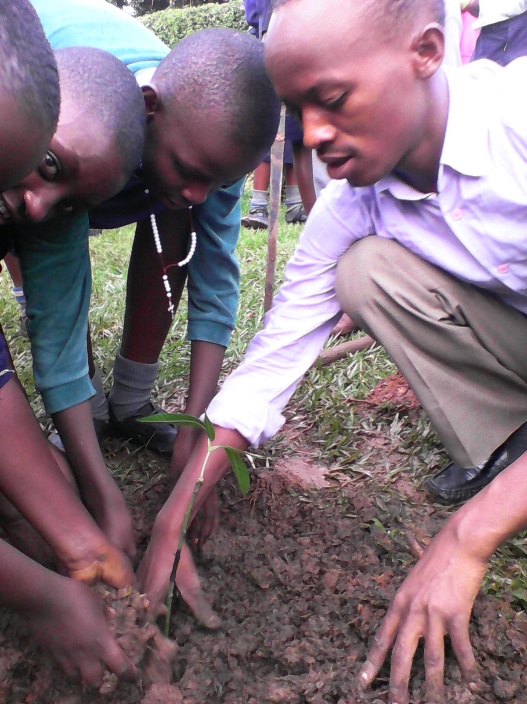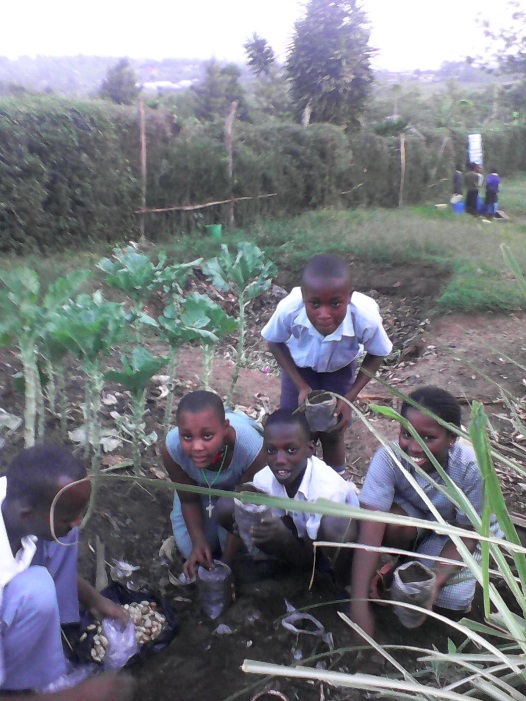School Gardening Project Uganda
In March 2015, the Movement of Life Uganda team launched a school gardening project at the St. Agnes Centre for Education in Mbarara town, located in the Western Region of Uganda. Led by Gyavira Mwesige, the project involves growing fruit trees, vegetables, and medicinal plants. Enthusiastically supported by children, parents and teachers alike, over 1000 fruit trees have now been planted at the site and in the surrounding area. Impressively, with word about the initiative beginning to spread beyond Uganda, the team has recently even had children from neighbouring countries such as Rwanda and Burundi taking part.
In carrying out this work, the Movement of Life Uganda team has a deep understanding of the fact that the children are not only taking steps to protect their own health, and that of their community, but also the wellbeing of future generations. As Gyavira Mwesige describes, the principle of enabling the people of Mbarara to have access to a micronutrient-rich diet to benefit their health was central to the philosophy behind the setting up of the project. Fruit and vegetable seeds harvested through the initiative are donated by the children to members of their local community.
Children who perform especially well in the project, such by donating the most seeds or planting the most crops, are rewarded for their efforts. Copies of the Dr. Rath Health Foundation’s ‘Secret of Cells’ book, authored by Mirja Holtrop and Dr. Matthias Rath, are used for this purpose and given to the children as prizes. It can thus be seen that the books have a dual function, in that they serve both as an incentive to do well and as educational tools.
Paul Anthony Taylor is Executive Director of the Dr. Rath Health Foundation, a non-profit organization dedicated to improving human health on a global scale through scientific research, education and the defense of patients‘ rights to choose natural health therapies.

The role of the School Health Parliament
The gardening work carried out at the school is organized and conducted through a ‘School Health Parliament’. Led by a Speaker, Deputy Speaker, Parliamentary Clerk and Sergeant at Arms, the members of the school parliament meet regularly and are democratically elected to represent their classes.
The primary roles of the School Health Parliament involve carrying out the following duties:
- Taking care of the running of the school gardening project through various parliamentary committees.
- Making sure that each child has hands-on experience of the project.
- Disseminating information to fellow students about the importance of micronutrients to health and the latest research findings of the Dr. Rath Research Institute.
- Planning and implementing all health-related issues under the guidance of the health and sanitation teacher at the school.
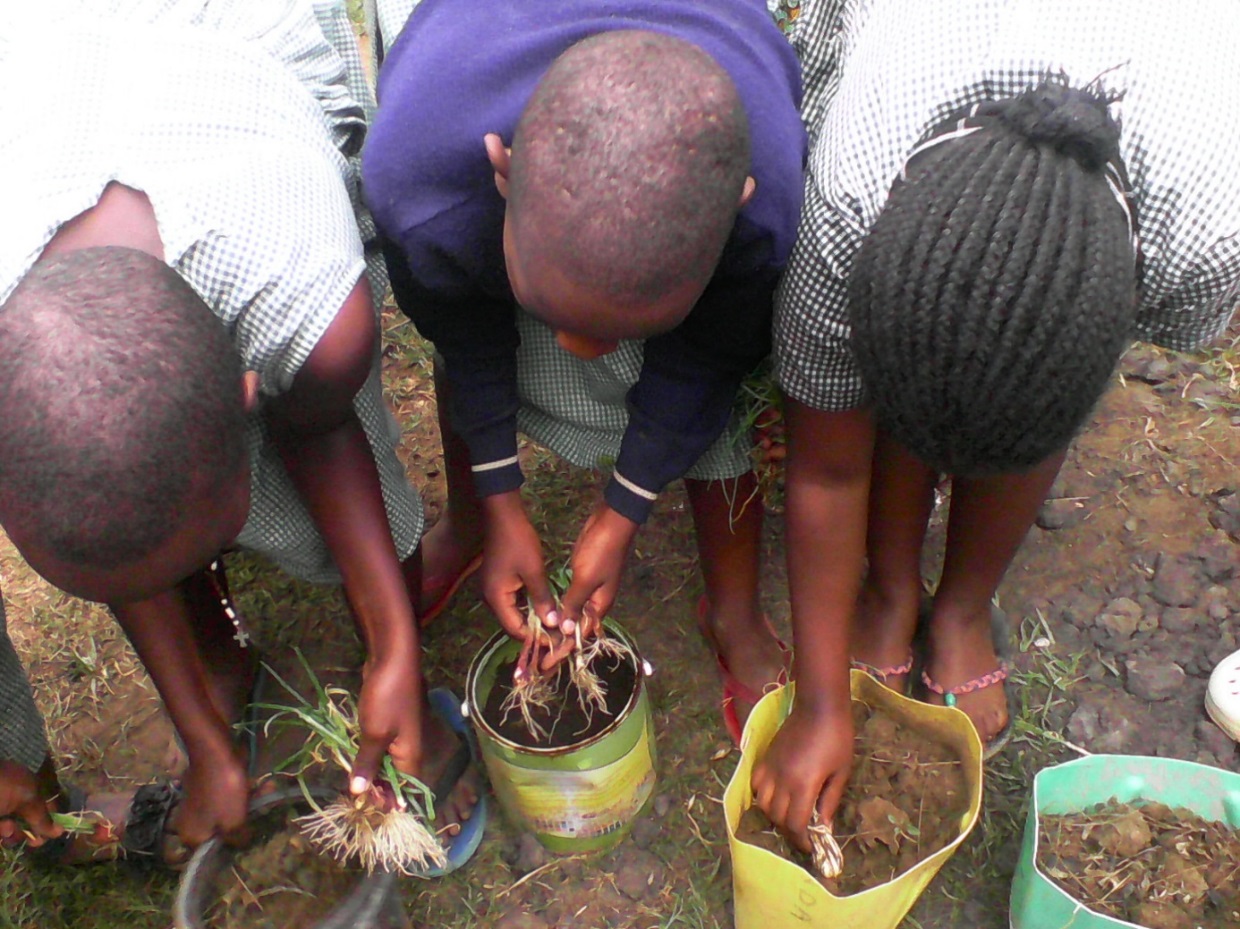
Despite having only been up and running for a period of just over one year, the project is already showing clear signs of improving the children’s health, health knowledge, and overall performance:
- As a result of the children learning how to help prevent headaches by drinking sufficient water, Gyavira reports that the annual school budget of $500 for painkillers has been reduced by over $130. (Increasing water consumption to an average of 2 liters per child per day is one of the key goals of the project).
- A reduced incidence of malaria among the children has been noted.
- The parents report that the children are increasingly asking for fruit to eat, instead of packaged foods.
- The children’s performance in science subjects has improved. The Movement of Life Uganda team attribute this to the fact that, through working with seeds, plants and trees, the children are experiencing hands-on practical lessons. As Gyavira himself puts it, the school garden has become the children’s laboratory!
Gyavira says that the children never to fail to inspire him. During the Health Parliament discussions, for example, they decided to start a campaign to save all their plastic bottles and reuse them as containers for watering the fruit trees. This demonstrates that, so far as recycling is concerned, hands-on experience is always the best educator and instigator of ideas!
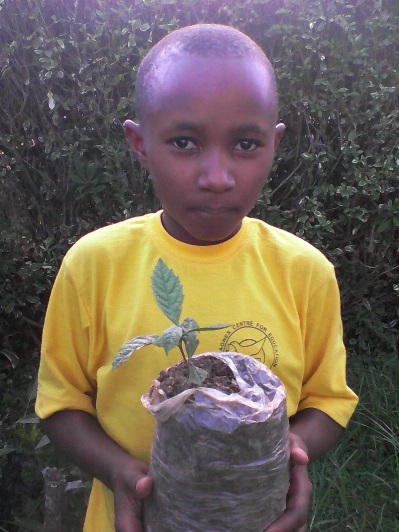
Health and gardening training for all stakeholders
Looking ahead, the Movement of Life Uganda team has resolved to ensure that, in addition to the children, the School Management Committee, teachers, parents, local religious leaders, and other key stakeholders are all given health and gardening training as a part of the project.
To achieve this, the team are planning to organize home visits and other appropriate meetings in which they will offer health education lessons to the stakeholders. The information shared in such meetings will especially include an understanding of the relationship between cardiovascular diseases and micronutrient deficiency. To ensure that the information shared is acted upon to the benefit of the stakeholders’ health, fruit tree seedlings will be donated to them during all such consultations.
Another key plan the team is working on is that, in each family, one family member will be tasked with becoming the focal point and chief communicator with the Movement of Life team. In this way, once every family member has received and understood the health education information provided to them, they can each then go on to teach what they have learned to other members of their community. This guiding principle of stakeholders becoming health teachers themselves will also be applied to School Management Committee members, teachers and religious leaders alike.
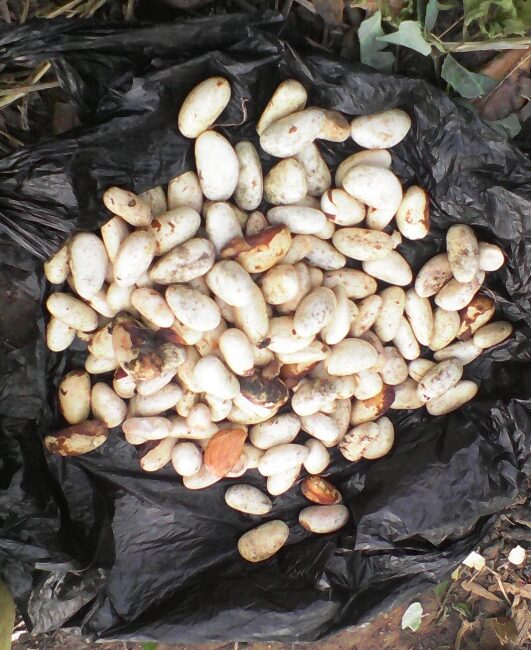
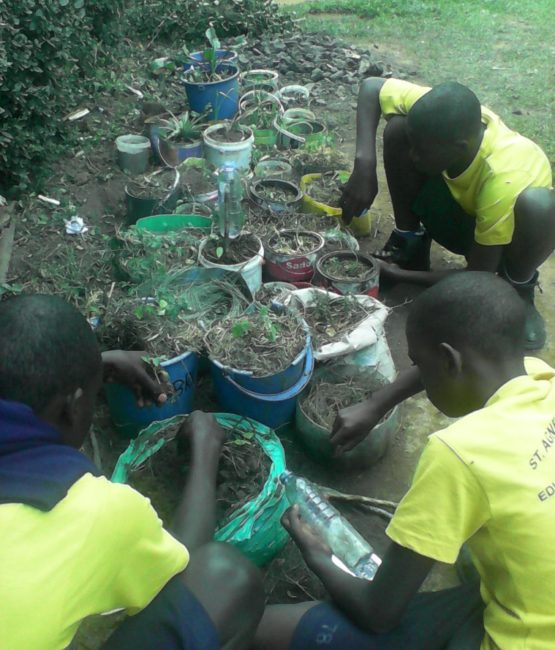
Promoting the ‘End Heart Disease: Plant a Fruit Tree’ campaign
Launched in July 2015, the ‘End Heart Disease: Plant a Fruit Tree’ campaign is a Movement of Life global project coordinated by the Dr. Rath Health Foundation. Its aim is to educate people how heart disease is caused by a long term lack of vitamin C. The inspiration for the campaign is Dr. Matthias Rath’s scientific discovery about the development of heart disease, published in the Proceedings of the National Academy of Sciences of the United States in 1990, and the inverse relationship between its incidence and our intake of vitamin C. Following the recent release, by scientists at the Dr. Rath Research Institute, of scientific proof that atherosclerosis is an early form of the vitamin C deficiency disease scurvy, it is clear that the elimination of cardiovascular disease as a cause of human mortality is now possible.
Having learned that fruits are a good source of vitamin C, the children at the St. Agnes Centre for Education have become keen supporters of the ‘End Heart Disease: Plant a Fruit Tree’ campaign. During the coming year they are therefore planning to organize a volunteer membership mobilization to raise further awareness of the health benefits of a vitamin-rich plant-based diet. Taking the form of school clubs, their plans include the forming of fruit tree planting clubs; vegetable gardening clubs; health education clubs; and other similar ventures. Each club will have its own committee, as well as registration and membership forms, and will be supported by local volunteers.
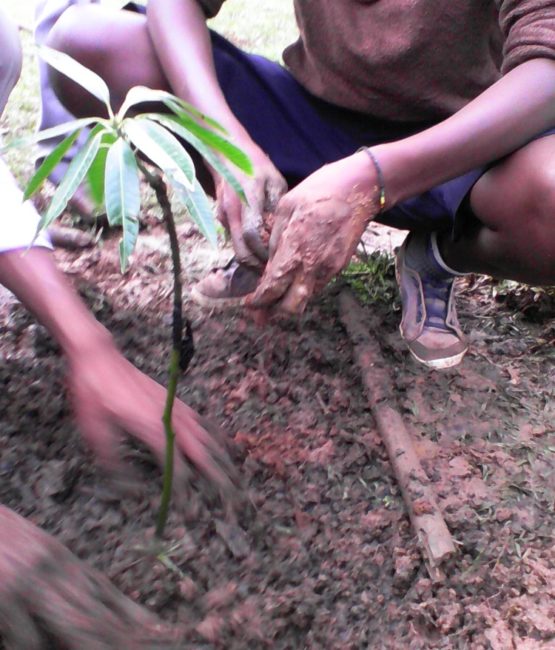
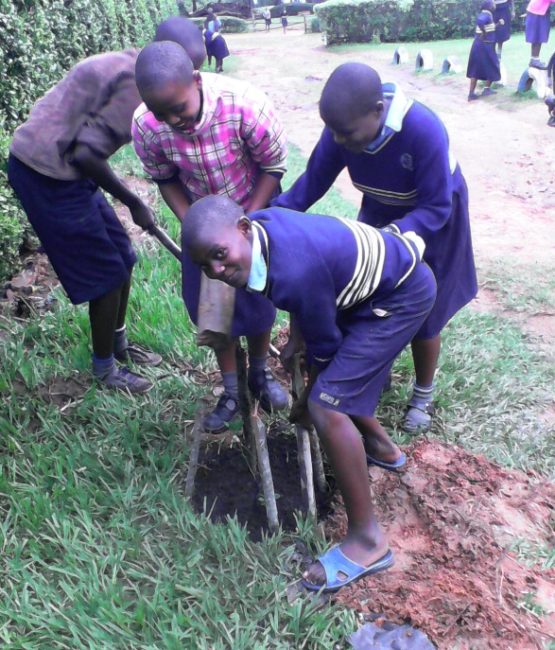
Helping to ensure the Uganda of the future will be a healthy one
Scientifically speaking, while we now understand the crucial role played by vitamin C in preventing atherosclerosis, the reality is that only a small and negligible minority of the world’s population currently consume a sufficiently high intake of fruit and vegetables to achieve this. As a result, and as the World Health Organization acknowledges, an estimated 17.5 million people died from cardiovascular diseases in 2012, representing 31% of all global deaths, with more people dying annually from these diseases than from any other cause.
Arguably the biggest tragedy behind this statistic is that not only have the people of the world not been informed that cardiovascular disease is caused by a long term lack of vitamin C, their governments are essentially doing little or nothing to provide optimal amounts of this crucial nutrient for those who can’t afford them. Clearly, therefore, and as the Movement of Life Uganda team are demonstrating, rather than continuing to rely on our governments to take action on this, we have to do it ourselves. In this respect, by inspiring children and members of their local community to take an interest in their health through participating in the St. Agnes Centre for Education school gardening project, Gyavira Mwesige and his colleagues are making an important contribution towards helping to ensure the Uganda of the future will be a healthy one.

You can learn more about the Movement of Life and its campaigns on the following website:
www.movement-of-life.org


